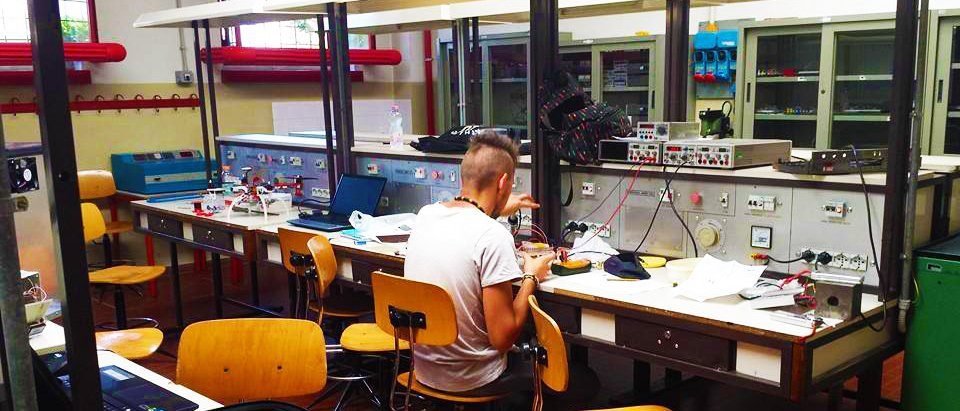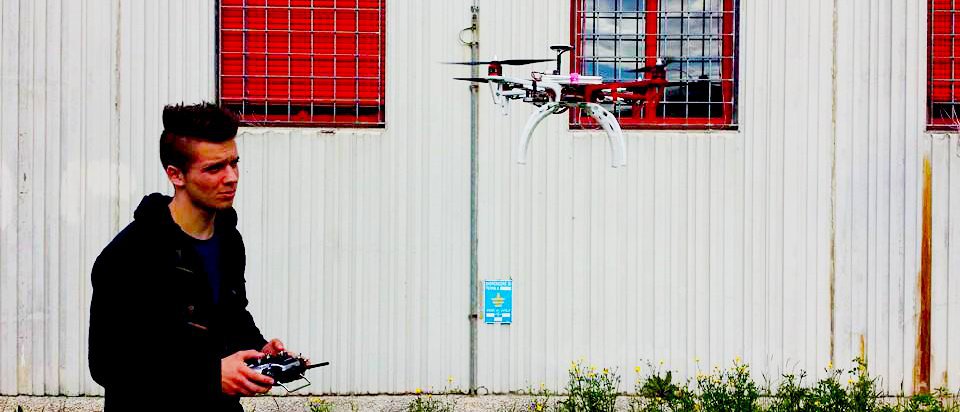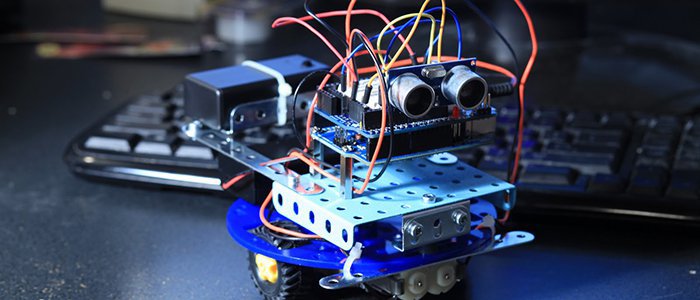The maker culture help the ideas to become concrete actions that get students closer to the work world. Interview to Daniele Pauletto and Stefano Micelli
Technologies, innovation, and new planning and thinking models are slowly making their way into the world of Italian schools. Alongside frontal lessons, print books, and the notions about learning through memorization and classwork, some prepared and farsighted teachers are introducing, especially in technical institutes, the Maker Culture. The way of thinking linked to do-it-yourself technology, the use of one’s hands, and the values of Doing and Thinking, in an engineering and investigative way that pushes students to move into new frontiers.
This is a revolution taking place in Italian schools together with the FabLabs and other spaces that are opening in numerous cities where makers and digital artisans and hobbyists can meet and experiment with 3D printers, Arduino, laser cutters, numerically controlled machines, sensors, and robots.
The moving of schools in the direction towards a maker culture is a route that requires time and investments, as well as the right tools and illuminated teachers and innovators. It is a passage from a type of passive education to an approach oriented towards creativity, joining the game and innovation. All requisites that will be useful for the students of tomorrow: «It is important that young people orient themselves towards innovation and creativity», explains Stefano Micelli, teacher at the Università Cà Foscari of Venice and author of the book Futuro Artigiano (Marsilio), «capabilities that will be required of them on the job market. The real challenge is making sure that young people learn to think and rethink the world that surrounds them».
It is an education that turns the rules upside-down and rethinks roles: a school that diffuses the culture of doing, typical of Makers, is a school in which students and teachers put themselves at the same level, where collaboration rules, and the sharing of projects and study goes beyond the books. After all, the maker culture approach is completely different to that of traditional schools: «The maker world – continues Stefano Micelli – works on projects, not discipline, to the contrary of the current scholastic system. It is a matter of, therefore, two different learning experiences, of a new way of reasoning in which manual skills become central along with the idea of independence, where you construct your interpretation and you define your priorities».
While the Maker Faire of Rome is inviting high school student-makers and their teachers to come present their projects with the Call4School initiative, there are other, and probably too little reported on, initiatives that students have organized within the walls of their classrooms. Like at Ipsia Galileo Galilei di Castelfranco Veneto (Treviso) where professor Daniele Pauletto and a group of students have constructed a drone, that is, a small remote-controlled flying aircraft, speculating on numerous concrete uses that could satisfy the needs of citizens, and which some students have written their theses on.
The project, which began in 2013, united students from high schools and technical schools who worked in a real MakerLab, where creativity and manual skills dominated. «The initial DroneLab – explained Professor Pauletto – has progressively expanded to a maker laboratory, covering scholastic disciplines: electronics, mechanics, telecommunications, physics, science, IT, technological workshops, digital social networks, and audiovideos that document the experiences». But, above all, beyond grappling with studies and the realization of the drones, numerous uses were also proposed, the first of which foresees the home delivery of medicine to people who have difficulties with mobility, and not just this.

«The applications that have been though of and realized – continued Pauletto – are various, for example, a voice has been given to drones (via Bluetooth and wireless), transforming them into “tourist guides” that can accompany tourists on their visits to the Museo del Giorgione or the Duomo alla Pala del Giorgione. We have created drones that clean, dust, and mop and dry floors. And we have thought up the sommelier drone that can pour to the exact drop the precious Grappa di Cartizze. The important thing, for all of the possible applications, is that of transforming the drone or minidrone into a multifunctional object».
However, though the school year has ended, the activities at Ipsia Galilei have not stopped: they are continuing with classes within the Maker Campus three times a week. The subject, after all, has impassioned the students, who have become much more interested in technology through experimentation and the proposition of new uses.
«The maker culture – declared a teacher – creates new opportunities even outside of classrooms, as in the case of some high school theses by my students who have gotten some nursery owners interested in the management of greenhouses and watering with the Arduino card; or with smartphones, using various NFC tags programmed with applications, they are involving restaurants and other businesses in managing reservations. And, in the same way, minidrones with photographic and video devices for the inspection of building rooftops that is attracting the interest of architects, construction companies, and city governments».
Ideas, in other words, that are becoming concrete actions that get students closer to the work world.




